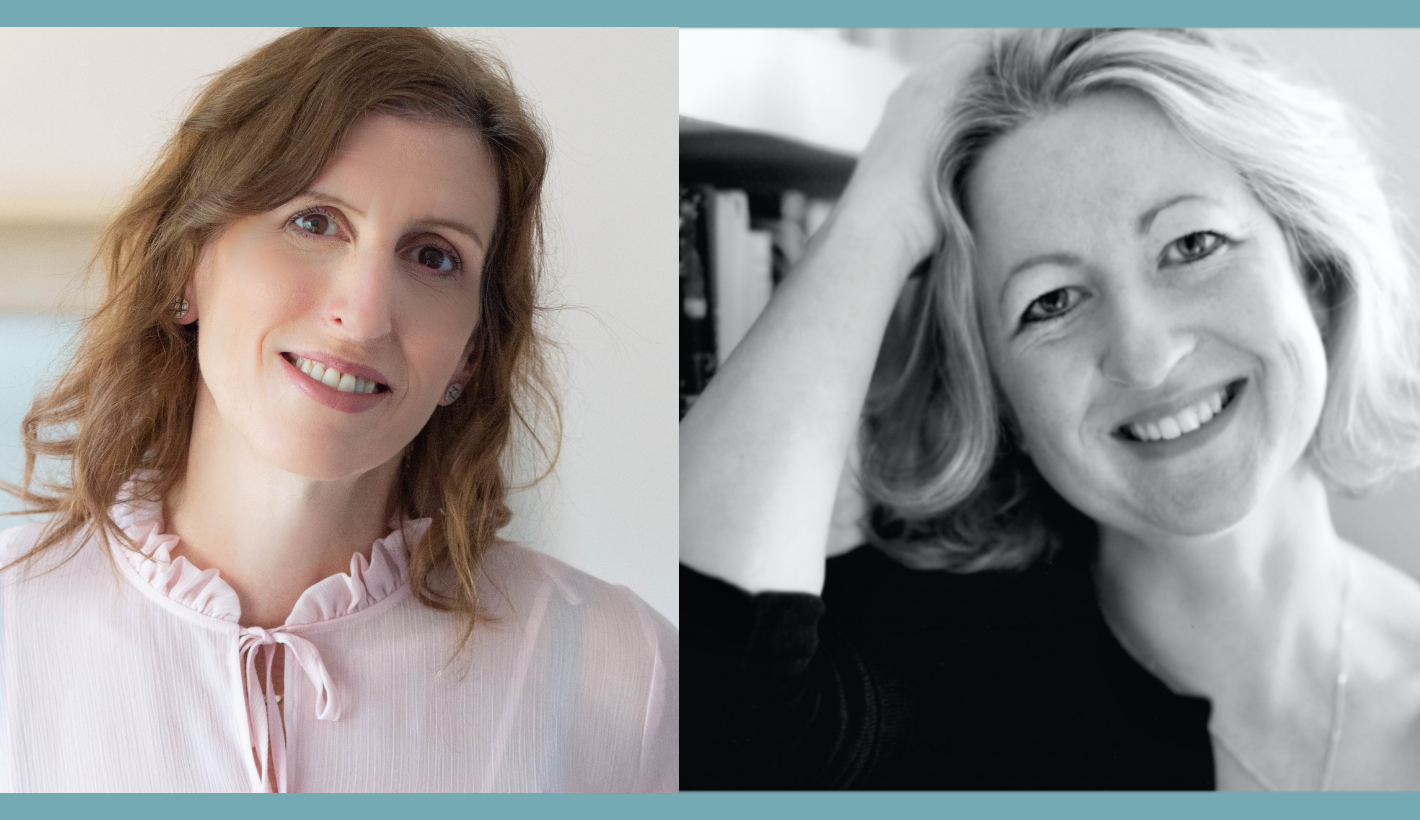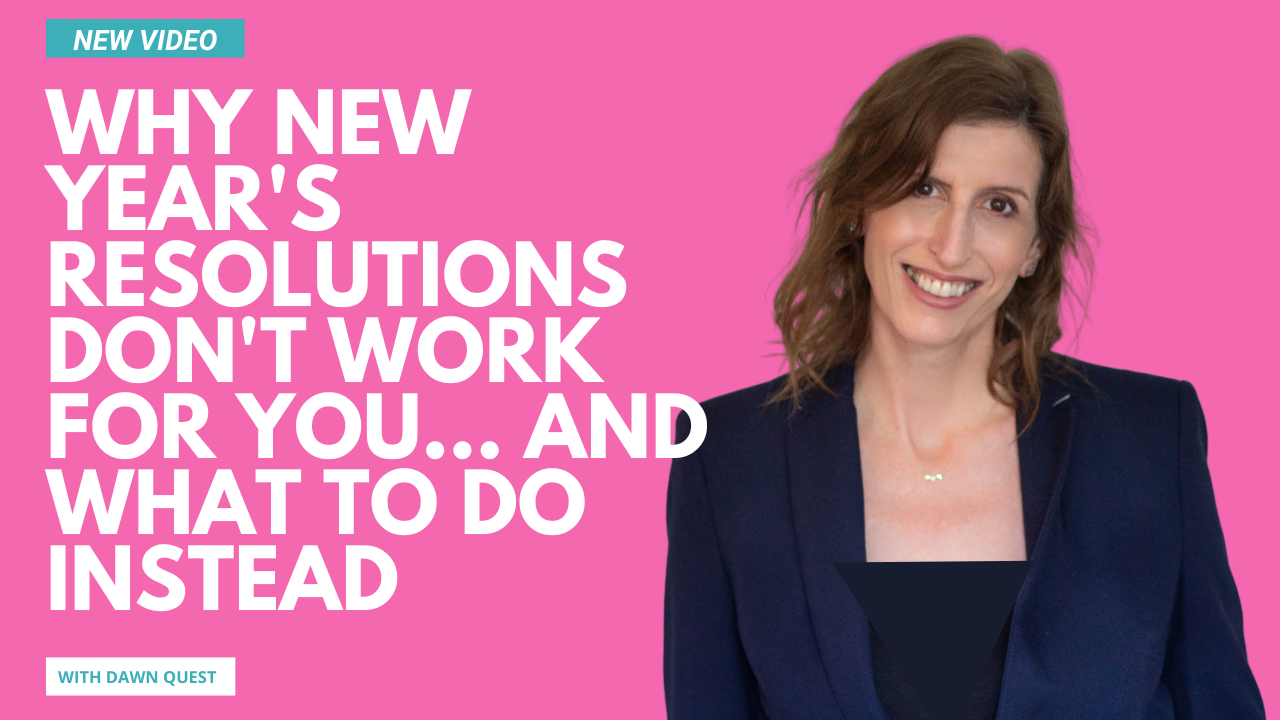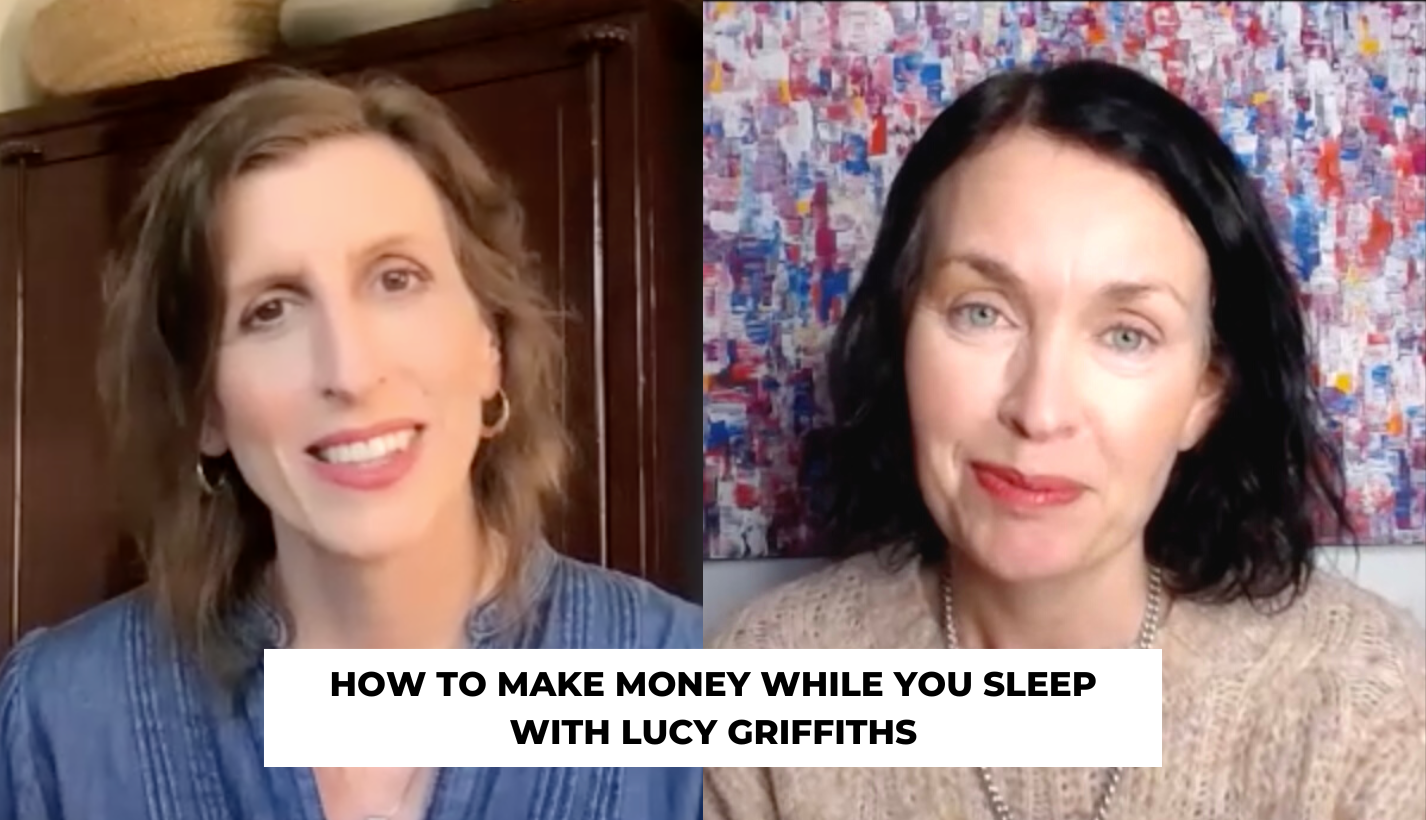
The following is a transcript from Dawn's talk: How to Change Your Life, at Wellness Wednesday, Tunbridge Wells, on 12th February 2020
Hello, I'm Dawn Quest. I'm a Rapid Transformational Therapist and coach, primarily working with female clients to help transform their lives through change in all aspects of their lives - career, relationships, family, confidence and self esteem and weight loss and body image among others.
Just to give you a little information about Rapid Transformational Therapy. It's a very powerful form of hypnotherapy that can help get rid of any subconscious blocks that are standing in the way of my clients' success and happiness. Time and again I've seen RTT transform my clients' lives in very impactful positive ways. So if you have any questions about RTT do come up and have a chat after my talk.
I'm here tonight to talk about How to Change Your Life.
And I'm assuming, hopefully not wrongly, because you are all sitting here it's because in some way there may be some aspect of your life, big or small, that you want to change or maybe you are ready to take a big step, that big leap of faith and make a major life change - but somehow it feels daunting and overwhelming and frankly downright terrifying - and that is quite understandable.
In the next 15 minutes, I hope to be able to inspire and motivate you to make any changes in your life that you've been considering, maybe for a while now, big or small, and give you some key practical tips to get you started on the path to changing your life for the better.
Maybe you're stuck in a job that at the very least doesn't fulfil you but at the extreme end is causing you stress, anxiety and emotional issues. Maybe you're unhappy in your relationship or relationships and you are trying to make a decision about whether to stay or go. Maybe you feel unhappy with the way you look or feel about your body - maybe you want to get fitter and healthier. Or maybe - and this is true for a lot of people - you don't know what you really really want - but you know you're unhappy, you feel unfulfilled and lacking in purpose, and that there has to be something better for you out there than what you have already.
Whatever the change may be... I am going to talk about what needs to happen first before we can successfully change our lives. Why it's important to understand exactly what is holding you back from making a change - and that could be practical reasons, emotional reasons or most commonly, FEAR. And what to expect when you start making changes in your life - and that can mean self-sabotage but also sabotage from others.
And, I'm going to outline some key steps to get you on the path to making the changes you most want to make that help you feel good about yourself and your life.
The very first change that needs to happen, before you can make any other change or changes in your life, is in your mind. And that means every negative belief, feeling and thought that is keeping you stuck in your current situation needs to be removed, eliminated and replaced with something much more positive, attractive and more powerful.
People make the most dramatic changes in their lives when they suddenly have a wake-up moment where they realise: "That's it, I can't take any more, things have got to change. I have got to change now."
In that split second they know that life has to change and they can't go back to being the old them, in their old life - their minds have suddenly had an upgrade, if you like - just like a phone - and switched to a better more efficient operating system.
Maybe you've even experienced it. Perhaps you know you have been eating badly but it only hits you when you're in a shop and you try on a pair of jeans and you have to go up a size. You think: "Crikey. I need to lay off those Mars bars I've been having every day for the past three months." Maybe that one glass of wine after work to destress has turned into two, maybe three.. and you wake up one morning and you have a hangover and you say to yourself "never again". Or you've had to work overtime once again and you've missed your child's birthday party and the look on their face when you get home is just too much to bear. We all have that moment that is unique and personal to us - it's a breaking point moment.
But, while change happens in a second, what comes before that moment, may be days, weeks months, sometimes years of deliberating; of hoping, wishing, wanting things to be better, for things to change.
In other words, there's a whole lot of "putting up with" we do before we reach our breaking point. We justify the things we are unhappy about in our lives. We're not unreasonable people - we want to help, to be cooperative , we don't want to rock the boat, we want to be liked. Or that classic - what will people think? So we put up with things.
Until, for some of us, the day comes that we don't. And that day is when the discomfort and perhaps fear of change is far less than the discomfort and pain of our current situation.
And that's the secret to change: you need to be able to tell yourself that if the worst happened, your life would still be better off by making that change than what you are currently experiencing.
So, let's say you've got to the point where you know things have to change and you're ready to take action. What then?
So point two:
My question to you is: what has held you back in the past and what is holding you back now from making the change you most want to make?
What usually happens in the lead up to wanting to change our lives, or in the very moment that we make that decision, is our old primitive survival mechanisms kick in and we may start to hear that voice in our head and it's usually saying something negative, like: What if it all goes wrong? What if you fail (again) You'll never change. You tried before, you can't change." And so on. Our minds can come up with many logical and rational reasons for staying where we are and maintaining the status quo.
The trick is to be able to determine whether what is holding you back is real or imagined. And by imagined I mean FEAR. A real and practical reason for not wanting to change jobs may be that you know this year you're going to have some major household bills, so the timing isn't right. But you can work with that. An imagined reason is, something like, "well, no one is going to want to hire me, I'm too old, I'm too qualified. There are no jobs in my industry right now. Best to stay where I am." Those, for the most part, are fear dressed up as reason.
Now fear is a very basic emotion and it's designed to protect us. That's its one and only job. Back when we were cavemen and women, fear kept us alert and prevented us from being eaten by dinosaurs. Fear meant the survival of the species.
These days of course, we have very different dinosaurs to fear. But in most situations in everyday life, the feeling of fear is triggered by an ancient need to survive - far beyond what is real and necessary. In other words, fear may keep us safe, but it also keeps us stuck - and sometimes stuck in the most awful, miserable situations .
So, maybe you are thinking about setting up your own business, but your fear is, "I'll fail, I'll be declared bankrupt, lose my home, lose my family. I'll be that person everyone crosses the road to avoid speaking to out of embarrassment."
Maybe you want to give a talk at a local PTA event on a Wednesday evening, and you're worried that you'll be overcome by nerves or make a huge fool of yourself - or that no one turns up.
How I coach my clients through fear is with this basic exercise: I ask them to think about their worst case scenario - maybe write it down and really go to town on the gory details: the public humiliation the financial ruin, losing friends or alienating loved ones...
And then I ask: what would you do if the worst case scenario happened? And again I get them to describe exactly how they would respond in this situation.
And in every case, my client reels off a list of actions they would take if they ever found themselves in that worst case scenario. And what they realise by listening to themselves speak out loud is that if the worst case scenario happened - they would cope,, they would find a way out of it. And you will too. We are all more capable and resilient than we think.
Another benefit to thinking about worst case scenarios is by rehearsing them ahead of time, the reality never ever pans out as bad. It just never does.
So, examine your fears. Ask if they are real. Ask yourself, if this fear came true how would I handle it and come up with some logical, practical ways you would cope. And then move on.
So, now you're ready to make the change, you've addressed your fears.. and now I am going to point three and give you a warning and it's this: Don't expect everyone to be happy for you.
And that my come as a shock. You may be excited about all of the positive ways you are changing your life and some people will be very supportive. And some people won't. And it may surprise you who isn't supportive. It may be those who are closest to you.
Because while you may have addressed your own fears about the changes you most want to make, you'll be coming up against other people's fears about how you will change. And guess what, their fears aren't real either.
For example, if you decide to lose weight and you start sticking to a healthy meal plan, you may find your friends, who may also be unhappy with their weight, start to try and sabotage your plans by offering you chocolate or cake. And they may not doing it intentionally. It's because if you change and become this slimmer version of yourself, what happens to the, what questions will they need to start asking themselves.
If you decide to give up drinking, you might have friends tell you you're being boring. You may be giving up for serious health reasons - that's not boring. But again, it's because they fear losing a friendship, losing the comfort they had drinking with you. Because you drinking with them validates their drinking - even if they themselves know they're drinking too much.
So expect to feel some resistance. Try if you can to surround yourself with the positive people who support you. That doesn't mean not listening to sensible advice - you don't need yes men, But it's about examining the the motives of those you don't support you. Their resistance may be nothing to do with you and everything to do with them. And remember that those who mind don't matter and those who matter don't mind. If you have to, if you suspect someone might not be supportive, in those early days when you are making positive changes but you feel vulnerable to criticism perhaps, then keep it quiet until you feel strong enough to say what you are doing.
So once, again, there is a free downloadable workbook on my website that outlines an eight step plan - your own personal blueprint for change, if you like. So please do take a look.
To round up, I want to tell you that changing your life may be the most important thing you ever do. In fact, changing your life can save your life. And I don't mean that to sound overly dramatic but I have seen this to be true.
I'm a big fan of the late American poet Mary Oliver. The majority of her poems were about nature, about being outside - they are very reflective and beautiful. And you may already know this quote, it is quite well known. "Tell me, what are you going to do with your one wild and precious life".
Because we sometimes forget don't we? We only have this one life. Most of our days we can easily fill with the mundane - paying bills and making dinner and trying to get kids to do their homework. But we forget - we are all in denial. Life is short. Life is too short and precious. And if you ask anyone at the end of their lives what they regret the most, they will tell you: the biggest regrets are not the things they did do, but the things they didn't - the opportunities they missed, the risks and chances they didn't take, the perseverance to stick to a goal, the people they turned away from.
Life is precious and short - and for that reason alone, don't we owe it to ourselves and our loved ones to be the happiest version of ourselves, the best version of ourselves. And that doesn't mean being selfish, or completely disregarding others' feelings - it means being responsible for our own happiness. If you've travelled on a plane, you'll know that the air stewards tell all parents, "if we hit turbulence and the oxygen masks drop down, put your own mask on first before seeing to your children's." And the reason is obvious of course. If you pass out because of a lack of oxygen you'll be of no help to your children whatsoever. So it is in life - if you are struggling with being unhappy or living a life that constantly rubs you up the wrong way - it won't just impact you. You'll be more irritable, more stressed, maybe you'll feel depressed more often than not. Everyone in your immediate circle will feel it too.
A college professor talking to his students, said: "You all have a little bit of wanting to save the world in you. But I want you to know that it's okay if you only save one person, and it's okay if that person is yourself".
Our own happiness, the choices we make for our own happiness can inspire our friends and loved ones and help them do the same.
So I am going to leave you with a last question and it's this: if you know what it is you want to change in your life, ask yourself, what is the very first step I can take right now to change my life for the better and commit to making it.
It is never too late to make a change in your life. In the words of the Chinese proverb: The best time to plant a tree was 20 years ago. The second best time is now.



